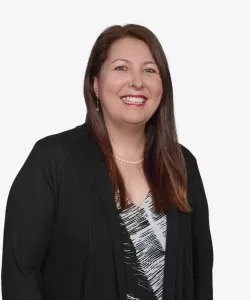There’s a New H-1B Lottery Program & Employers Must File Earlier This Year
The USCIS has significantly changed the way it will conduct its annual H-1B lottery this year, and, although many questions remain as to the exact logistics, one detail has been confirmed.
Employers will have to decide who they are sponsoring earlier this year. For a brief background, H-1B work visas are the most common work visas for foreign nationals in professional positions (which are jobs requiring at least a Bachelor’s degree). The USCIS caps the number of H-1B’s they issue each year to 65,000 for those with a Bachelor’s degree and an additional 20,000 to those with at least a Masters from a US institution. Many categories of H-1B’s are exempt from this cap (meaning they can apply for an H-1B anytime), including those: (1) transferring H-1B’s from one employer to another, (2) extending existing H-1B’s, (3) working for US colleges or universities, and (4) working for non-profit research organizations. Many more H-1B cap-subject applications are submitted every year than spots allowed, and, thus, the USCIS conducts a lottery every year to randomly choose which applications it will process.
Historically, employers filed their H-1B lottery applications on April 1st. But, this year, the USCIS developed a new H-1B lottery program, and, now, employers will have between March 1st and 20th to file a mini H-1B lottery application through an online USCIS portal (My USCIS) for each foreign national they wish to sponsor. The USCIS will conduct a random lottery based on all the mini-applications, and, those chosen in the lottery will be given at least 90 days to file their full H-1B applications. Those not chosen will remain in the electronic lottery registration system, and, if additional H-1B spots become available, the USCIS will choose additional H-1B applications from that reserve.
Based on information shared by the USCIS to date, the mini H-1B application will state the employer’s: (1) name: (2) primary address, (3) FEIN, and (4) authorized signatory’s contact information. It will also state the foreign national’s: (1) name, (2) gender, (3) date of birth, (4) country of birth & citizenship, (5) passport number, and (6) whether s/he has at least a Masters from a US institution. As far as we know as of now, it will not ask about the proposed job duties or worksite location, and a Labor Condition Application does not need to be filed prior to the mini-application. It is not clear if it will ask about the degree’s field of study (to determine if it is a STEM (Science, Technology, Engineering, Math) degree.
Last year, the USCIS reversed the order in which it conducted the lottery to give a preference to those with at least a Master’s degree. It is not clear if that will be the case this year, but, presumably, it will be. It is not clear if Premium Processing will be available for full applications.
Each mini-application will cost $10, to be paid online through the pay.gov site. If the USCIS determines that an employer has a pattern or practice of submitting multiple mini-applications, but then not following-up with filing full applications if chosen in the lottery, the employer may be fined and face civil & criminal penalties for fraud.
Regarding those in F-1 (foreign student) OPT (optional practical training) status, as long as their mini H-1B application was chosen, and their full H-1B application was filed prior to their OPT expiration date, their OPT work authorization will be automatically extended through September 30th (unless their H-1B is rejected, denied, revoked, or withdrawn prior to that date). Thus, to ensure that this OPT extension is activated in a timely manner, those in F-1 OPT status may want to file their full H-1Bs as soon as they are notified that they were chosen in the lottery (rather than using much of their 90-day filing window). As in before, generally, those with expired OPT’s will not have international travel authorization.
Foreign nationals must have their qualifying degree by the time they file the full application. Thus, a foreign national who is close to graduating with their Bachelor’s degree can file the mini-application, and then, if chosen in the lottery, take the full 90-day period to file the full H-1B application to allow time for the degree to be awarded. One note, however – the screenshot of the mini-application shared by the USCIS asks whether the foreign national has at least a US Master’s degree in the current tense. Thus, the USCIS may require those applying under the US Masters cap to have their degrees by the time they file the mini-application.
Many questions remain about how exactly the new program will be administered, and we will keep you apprised of any developments. But, in the meantime, employers should start preparing their H-1B lottery lists now given the impending March 1st mini-application timeline.
Contacts
- Related Practices
